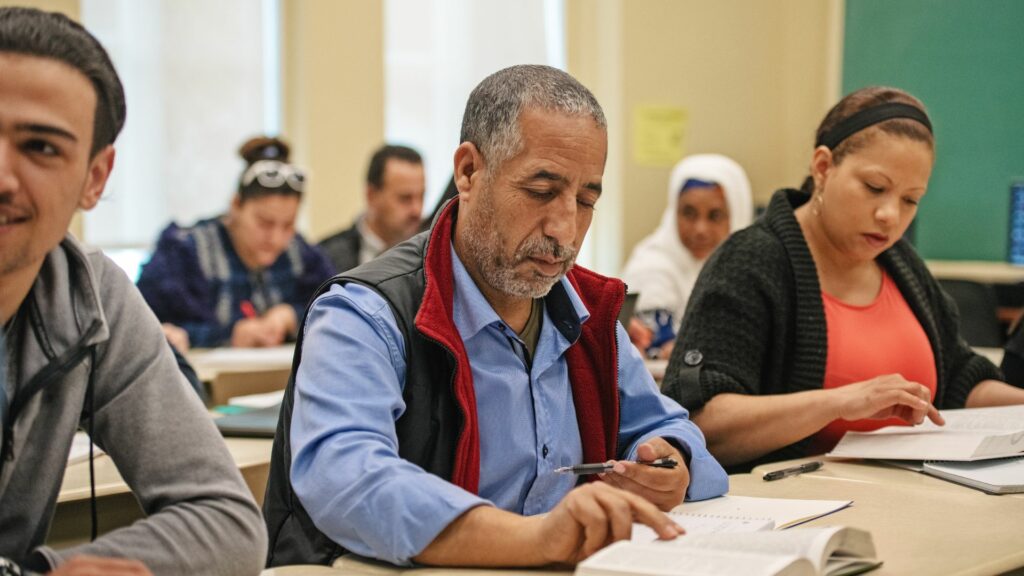The Centres for Adult Education (cvo's) and the Centres for Basic Education (cbe's) are increasingly facing higher care needs among their course participants, according to a survey by the Flemish Education Council (VLOR).
Following the survey, the VLOR argues for extra resources for CAEs and CBEs that they can invest in care and guidance, as in compulsory education, the Belga news agency reports.
It can be difficult to quantify, but certain groups need extra support more frequently. These are young adults, people of foreign nationality, affected by poverty but also people with mental vulnerability or learning disabilities. Remarkably, more students are entering CVO's or CBE's from secondary education, in order to obtain a secondary school diploma.
Like in secondary education, adult education has the task of guiding course participants, but it its not given any legal care framework to do so. How centres provide guidance and support is up to them: this is done, for instance, by giving teachers a number of hours off to provide career guidance. However, this means that schools have to finance such initiatives themselves.
Related News
- Pilot schemes to make "second-chance education" more accessible in Flanders
- Where to learn French and Dutch as an adult in Belgium
Hence the demand for additional resources. "If we can provide trainees in adult education with the guidance and support they need, we help people who make great efforts to develop their talents from a vulnerable situation," said VLOR president Ann Verreth. "In doing so, we also make social gains."
VLOR pointed out that there are project funds the centres can call on, but that they are time-limited, "while the influx of trainees with care needs appears to be anything but temporary."

